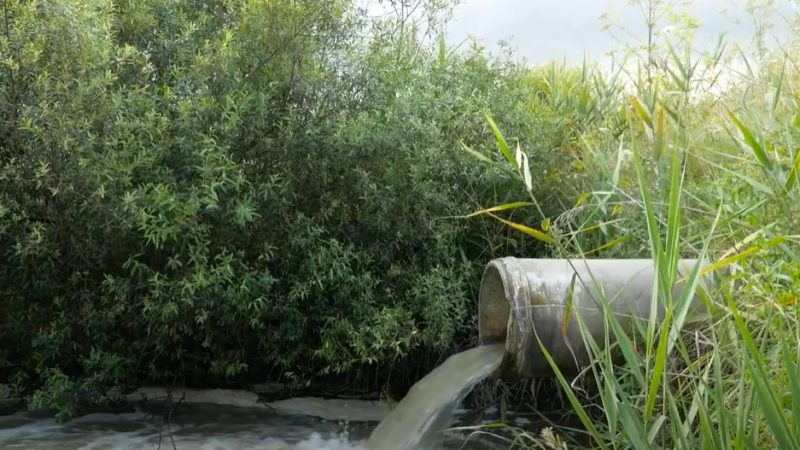'The rot set in 1989, when the Conservative government privatised ten state-owned regional water boards'

Prem Sikka is an Emeritus Professor of Accounting at the University of Essex and the University of Sheffield, a Labour member of the House of Lords, and Contributing Editor at Left Foot Forward.
Privatisation of the water industry in England has been described as an “organised rip-off” by its architects. High customer charges, low investment, dumping of raw sewage, tax dodges, financial engineering, regulatory inertia and high shareholder returns are key features of this privatised monopoly.
The rot set in 1989, when the Conservative government privatised ten state-owned regional water boards by selling them for £7.6bn to ten privately-owned water and waste water companies. The government wrote-off £5bn debt of the water boards and handed a gift of £1.5bn to companies. Individuals were given heavily discounted shares. The Office of Water Services (Ofwat) and the Environment Agency became key regulators.
Today, some 32 privately owned water and sewerage companies operate in the UK. Hedge funds, banks, foreign investment firms, private equity, pension funds and businesses based in tax havens own more than 70% of the water industry.
The stated aim of water privatisation was to increase efficiency and improve service quality, but it has instead become an exploitative industry. In the absence of parallel pipelines and reservoirs, there can be no competition. Since privatisation, water and sewage charges to captive customers have increased by nearly 40% in real-terms.
Ofwat claims that since privatisation, water companies have invested £160bn in infrastructure. However, investment into waste water and sewage networks fell by almost a fifth – 17 per cent – from £2.9bn in the 1990s to £2.4bn. Companies routinely dump raw sewage into rivers endangering human and marine life and biodiversity. In 2022, they dumped raw sewage into rivers and seas for more than 1.75 million hours.
Rather than increasing investment, the industry preaches social responsibility to consumers. Its media campaigns urge consumers to be frugal with the use of water, but never mention that every day some 2.4bn litres of water are lost in leaks from a poor infrastructure. Each year, many people face water shortages.
Fines for anti-social practices have become just another cost of doing business and have not checked predatory practices. For example, since 2010 Thames Water has been sanctioned 89 times and fined £163m, but its predatory practices continue.
Predatory practices boost corporate profits and executives are highly rewarded. Average water company executives’ salaries and bonuses rose by 21% from 2020-2021 to 2021-2022. There are no effective pressure points for curbing anti-social practices.
Financial engineering and tax avoidance is key part of the business model of the water industry. Companies have debts of some £56.2bn, but it isn’t all for investment. Hedge funds and private equity have loaded the purchased entity with debt to finance the acquisition. Water bills are hiked by about £80 a year, just to cover the interest payment, and will increase as interest rates have increased.
Higher debt boosts returns to shareholders as debt interest qualifies for tax relief, reduces cost of capital and increase shareholder returns. High debt is also used to shift profits to low/no tax jurisdictions. Typically, the debt is owed to an affiliate located in offshore tax haven. The company pays interest, but no cash actually leaves the group. The payment of interest reduces taxable profit and tax liability in the UK. The receiving entity in places like the Caymans pays no corporation tax on the receipt as it does not levy corporation tax. The debt functions as a device for shifting profits and tax abuse.
Water companies have excelled at maximising shareholder returns. Since privatisation, they have paid £72bn in dividends and another £15bn is expected by the 2030. In addition, unknown billions have been sucked out through intragroup and related-party transactions such as interest on debt, royalty and management fees.
Ministers have been well aware of the abuses. For example, in 2018 the then Environment Secretary Michael Gove said:
“There has been no investment in new nationally significant supply infrastructure, such as major reservoirs, since privatisation … They have shielded themselves from scrutiny, hidden behind complex financial structures, avoided paying taxes, have rewarded the already well-off, kept charges higher than they needed to be and allowed leaks, pollution and other failures to persist for far too long.”
Yet little has changed. Rip-off customer charges have continued. Tax avoidance is rife. Since 1989, the population of England has increased from 47.5m to 56m, but no new water reservoirs have been built. The land handed to water companies at the time of privatisation has been sold-off. New reservoirs are mooted, but can take nearly a decade to build and commission. Rather than forcing companies to invest, the government has shifted the goalposts. The Environment Act 2021 has given companies until 2050 to end dumping of raw sewage into rivers.
Water privatisation has failed. Public monopolies in private hands always lead to abuses and the water industry has shown that in abundance. Public ownership and empowering consumers to sue companies and directors is the way forward. Unlike England, water in Scotland has remained under public ownership. Scottish Water has invested nearly 35% more per household in the system since 2002, compared to England and it charges 14% less for water. So, the £87bn handed to shareholders in England would have gone directly to improve infrastructure.
Left Foot Forward doesn't have the backing of big business or billionaires. We rely on the kind and generous support of ordinary people like you.
You can support hard-hitting journalism that holds the right to account, provides a forum for debate among progressives, and covers the stories the rest of the media ignore. Donate today.



